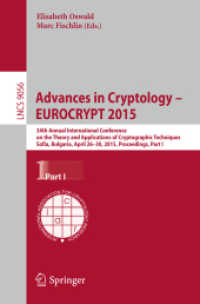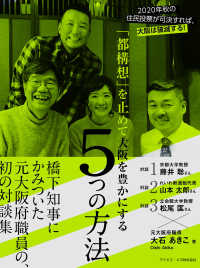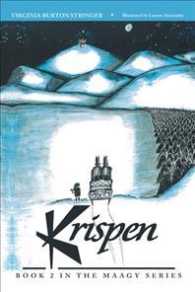- ホーム
- > 洋書
- > ドイツ書
- > Social Sciences, Jurisprudence & Economy
- > Politics, Society, Work
- > political science
Description
(Text)
The subject of this book is the emergence and development of crisis and peace processes in modern society. It examines two Greek-Turkish crises and several peace processes undertaken in their aftermath, as well as what is described here as a system of co-operation that emerged after a devastating earthquake in Turkey. The main argument of the thesis is that in modern society, which is functionally, not hierarchically, differentiated, crisis and peace processes are autopoietic that is self-reproduced social systems which are constituted through communication. The findings of the book demonstrate that crisis and peace processes involve not only segments of the society like leaders and elites but they are selections made by the whole of modern society in the course of its blind evolution which is based on the variation and selection of communication. Thus, these processes cannot be reduced to a particular reason or rationale like the protection of national interests or the desire for peace. Their dynamics depend on the connectivity and selectivity of communication about crisis/conflict and peace/co-operation. Thus, they are neither necessary nor impossible; they are contingent.








